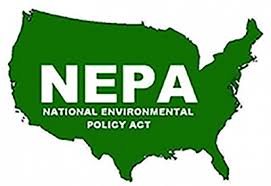Public Lands Watch: Repeal of Interior valuation rule
Interior Department repeals Obama Administration reforms to the prices paid by energy companies for public oil, gas, and coal resources
The Office of Natural Resources Revenue (ONNR) of the Interior Department published a final rule in the Federal Register earlier this week on August 7th, 2017, that the Department is repealing the “Consolidated Federal Oil & Gas and Federal & Indian Coal Valuation Reform Final Rule.” The 2017 Valuation Rule was published on July 1, 2016 with an original effective date of January 1, 2017. However, it was never gone into effect.
Procedurally, the 2017 Valuation Rule has been challenged and halted through litigation and administrative review. The 2017 Valuation Rule was challenged in three cases in the United States District Court for District of Wyoming on December 29, 2016. The Interior Department then postponed the rule on February 27, 2017 in advance of the February 28 date when the first report and payments under the rule would be due. The Interior Department postponed the rule under Section 705 of the Administrative Procedure Act which allows agencies to postpone effective dates of rules that are subject to litigation. As a result, the rule never went into effect. California and New Mexico are challenging the legality of the postponement of the 2017 Rule given that the effective date had already occurred and that the Interior Department did not hold a public notice and comment period. On March 28, 2017, President Trump issued an executive order which directed the executive agencies to review existing regulations and policies that potentially burden the development or use of domestically produced energy resources and to suspend or revise unnecessary regulations . The ONNR posted a proposed rule of repeal in the Federal Register on April 4, 2017. At the same time, the ONNR posted an advance notice of proposed rulemaking to gather public comment on what changes should be made to the 2017 Valuation Rule if it were not repealed and what particular issues the new valuation rule should address if the 2017 Rule was replaced.
The repeal of the rule will go in effect on September 6, 2017. At that time, the valuation regulations that existed before January 1, 2017 will go back into effect. The ONNR also expects to issue a new revised valuation rule sometime in the near future.
At issue in the 2017 Valuation Rule and Repeal is the amount of royalties that companies must pay to the federal government and tribal governments for oil, gas, and coal development on federal public lands. Companies must pay a royalty payment to the federal government based on a percentage of the value of production: the “royalty rate.” Nearly fifty-percent of this royalty goes to the state where the mining and drilling occurred. The Mineral Leasing Act of 1920 (30 U.S.C. 226(b)(1)) sets the royalty rate as not less than 12.5 percent of the amount or value of production.
A major controversy is over at what point in the production process the value of the coal, oil, or gas is assessed. A Center for American Progress study reported that coal companies often sell coal to a corporate affiliate or subsidiary at a deflated price; the subsidiary would then sell the coal at a higher, market price. Without the 2017 Valuation Rule, the royalties were then based upon this deflated value of coal sold at “non-arm’s length,” costing the government a portion of the royalties. The 2017 Valuation Rule would have required the royalties to be based upon the value of the commodity at the first “arm’s length” transaction, that is, to the intended consumer. The Northern Plains Resource Council, a Montana-based non-profit, argues that the repeal of the 2017 Valuation Rule will hurt local governments and schools: “Fossil fuel companies will pay $60 million to $75 million less each year for mining and drilling taxpayer-owned coal, oil, gas. Half of this money would have gone to the states where mining and drilling occurs to fund schools, roads, and other essential services.”
In the Federal Register notice, the ONNR explains that “a number of provisions in the 2017 Valuation Rule would have unnecessarily obstructed, delayed, curtailed, or otherwise imposed significant costs on the production, utilization, or delivery of Federal oil and gas and Federal and Indian coal.” Specifically, the ONNR contends that (1) several provisions and definitions in the 2017 Valuation Rule would make it challenging for industry to comply with or the ONNR to regulate, (2) President Trump’s Executive Order “Promoting Energy Independence and Economic Growth” directs agencies to repeal unnecessarily burdensome regulations on industry which would apply to the 2017 Valuation Rule, and (3) on March 29, 2017 Secretary Zinke announced that he will reestablish the advisory Royalty Policy Committee to evaluate the collection of royalties, the fair market value of energy and mineral resources, and whether there is a need for regulatory reform.
Alexandria Sadler helped draft this post.







Reader Comments